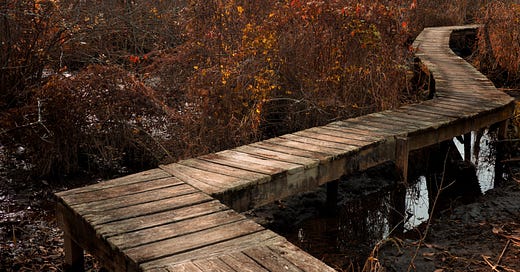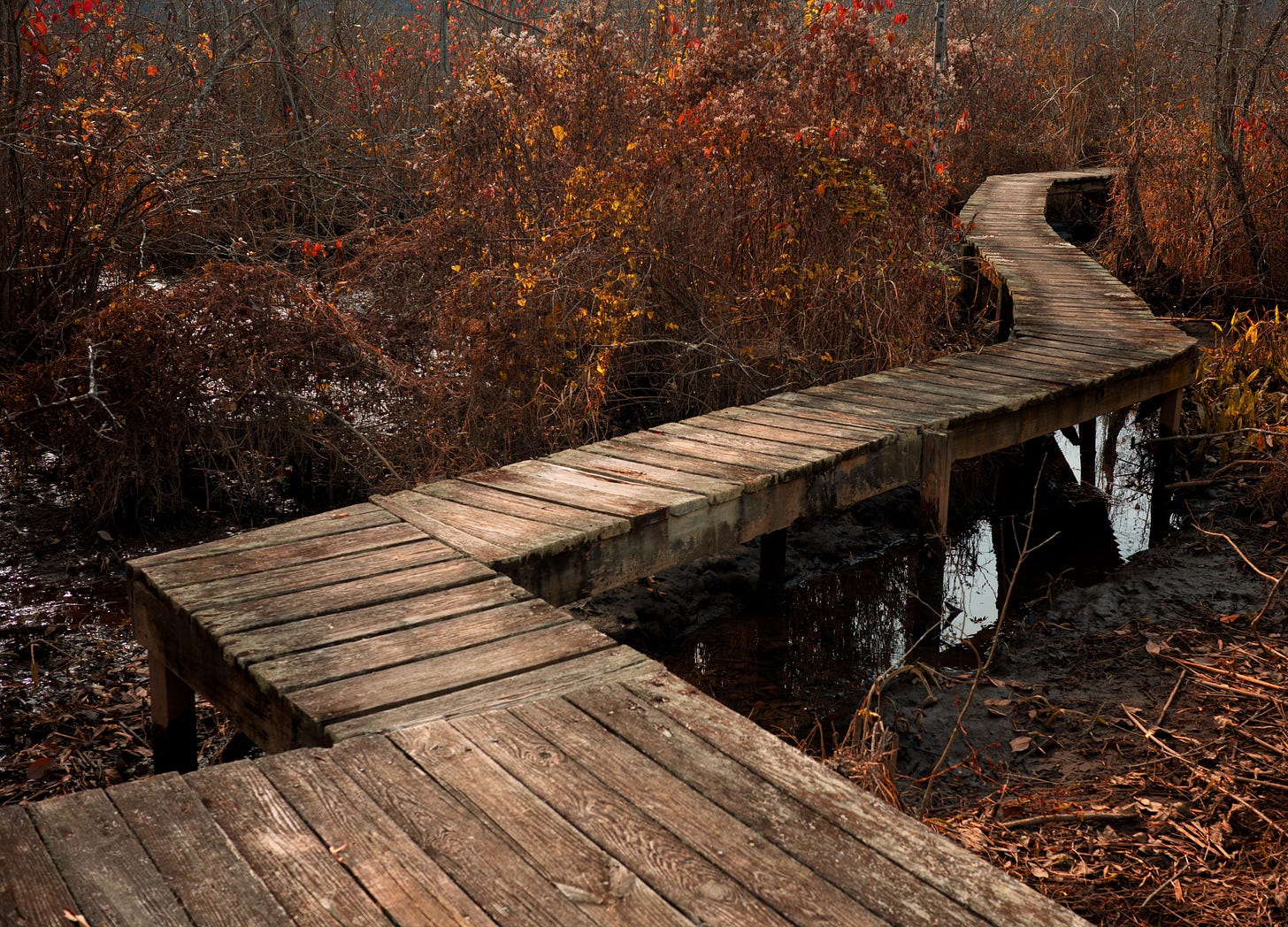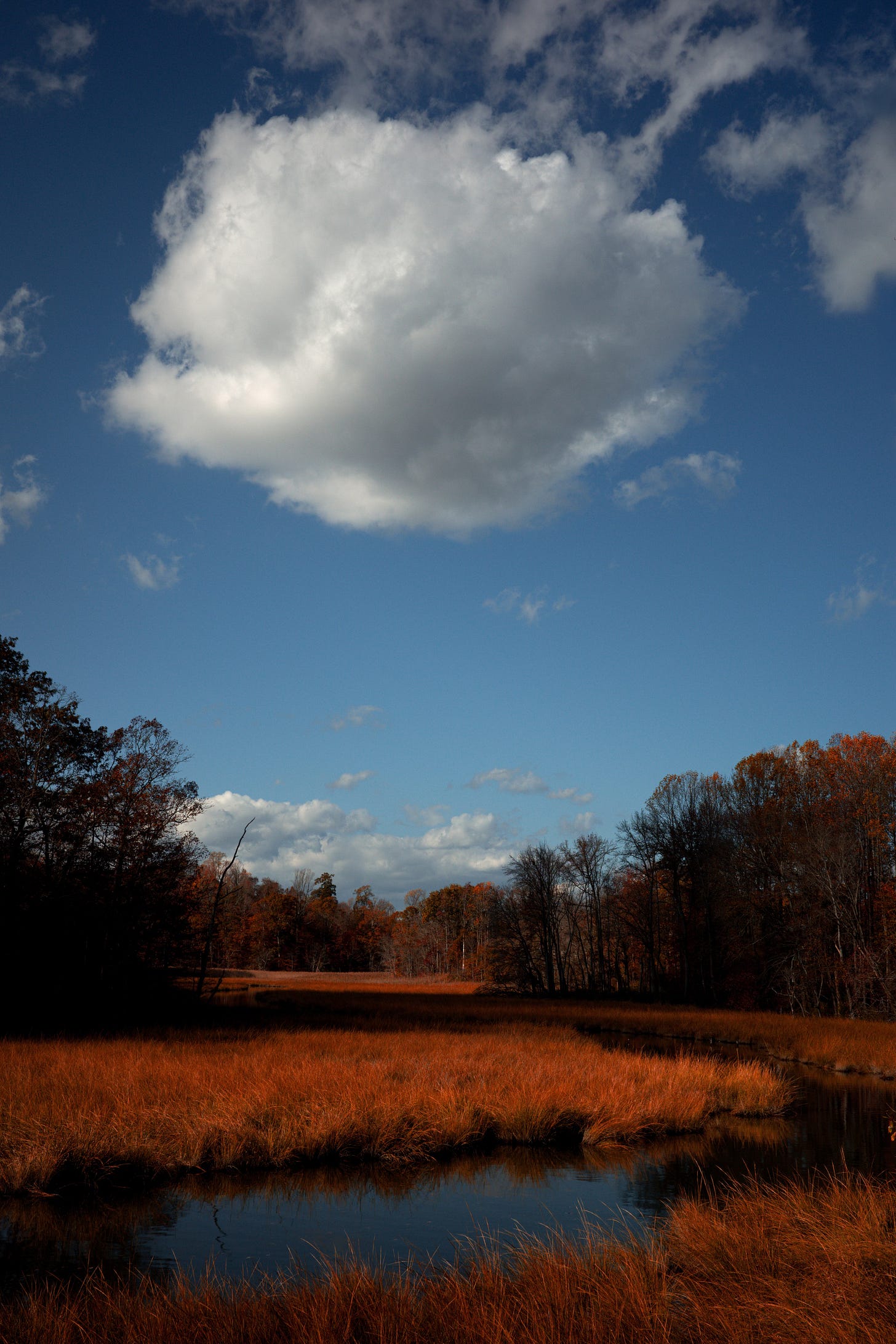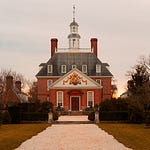This is the second part of an epic poem that itself is based on the first printed version of “The Skillful Huntsman,” published by the Grimm brothers in 1815. To get caught up, you can find links to previous versions here:
Part 1: Intro & Second Thoughts
A quick note on form:
In the late 1300s, a London-based civil servant with good city connections started writing funny stories about a fictional group of pilgrims. These stories were so well-received that they’re still studied in today’s English Lit classrooms, and for his fame and success, we often refer to the author as the “father of English literature.”
A bit of a bold claim, considering his primary contribution to the canon was to water down his mother tongue by formalizing so many French, Italian and Latin influences.
I kid, I kid. I love Chaucer. I would just like to point out that it’s a bit peculiar we consider the Canterbury Tales a staple of English literature, yet neither the meter nor much of the vocabulary derive from that language. Not Chaucer’s fault—he was very much a product of his time.
However, while Chaucer was writing his versified fart jokes, about a hundred or two miles Northwest of him, there was another writer who was getting to work on stories of a very different kind.
He was educated. In addition to Latin, religion and English history, the writer seems to have known a great deal about Arthurian legends and Anglo-Saxon, his language’s predecessor. While Chaucer employed the verse and meter that was fashionable in London at the time, our Northwestern writer dabbled in his own forms—a sort of mix of alliterative verse and structures unique to him.
Sadly, we don’t know the writer’s identity, and so we refer to him by his works: we tend to call him the Gawain Poet or The Pearl Poet, in reference to his two most significant contributions.
In terms of form, I’ve chosen with this story to follow in the Gawain Poet’s footsteps. I believe the meter used in Sir Gawain still fits the English language beautifully, and so I decided to help you and others experience something like it for yourself in Modern English—possibly for the first time.
2
Deep in his yearning, one day the youth
Spied through the sprawl a splendid gentleman
Cradling a cup of coffee alone
In the dim of dawn. His dress ill-fit
The tailored attire of the teeming folk
Striding beside him. He stood on the corner,
Boots and belt the brown of fresh earth
With gaiters and gloves grass-stained and weathered.
Brass were his buckles and brooch that held
The forest-green fabric affixed to his shoulders.
The best was his bow: Broad its limbs,
As yawning and timeless as the yew once tillered
To form its figure. “Fancy a turn?”
The man remarked to the mesmerized youth.
He brought his bow above his waist.
“Boys love a bow. They bolster the spirit.”
“You are skilled, I’m certain!” spoke the other.
“But it’s numbers I know. I’m new to the city.
Here’s where I hoped to have a career.
Alas, no longer do I love my trade.
Could I enquire if you’d care to take on
A proper apprentice? No payment needs
discussed—
To grow and learn from you
I’ll manage how I must.
You’ll find my work is true
And that the deal is just.”
3
“You’ve given me pause! I’ll grant that at present,
It would be handy to have you,” the huntsman replied,
“But lest I delude you, I’d like to be plain:
I’m from the far forest, still fraught with dangers.
Your knack for numbers would not protect you.
You could be killed—or carried away.
You’ll receive no assurances, except for this promise:
If you’ve grit and some gallantry, and give me your all,
I’ll shepherd and shape you. I’ll share all in turn.”
Gratefully, the youth agreed, forgetting his hopes
Of settling in the city. They absconded at once
At the behest of the huntsman, who hurried them on.
Westward they wandered, away from the concrete,
The glare of glass windows, the glowing lights.
City to suburb, street to byway,
West and away, to wonders mysterious
His tutor took him. They traveled beyond the
The roads that wrapped and reined in the land,
Pursuing instead the starker wilds
Known by names never recorded:
On Witherweal’s windy outcrop,
They stared breathless at the Stone Braces,
That curious region where rivers run contrary
And storms love to stir. They steadied themselves
and passed
In staggered, slow degrees
Those pillars of the past
And then they joined the trees
The forest found at last.














Share this post